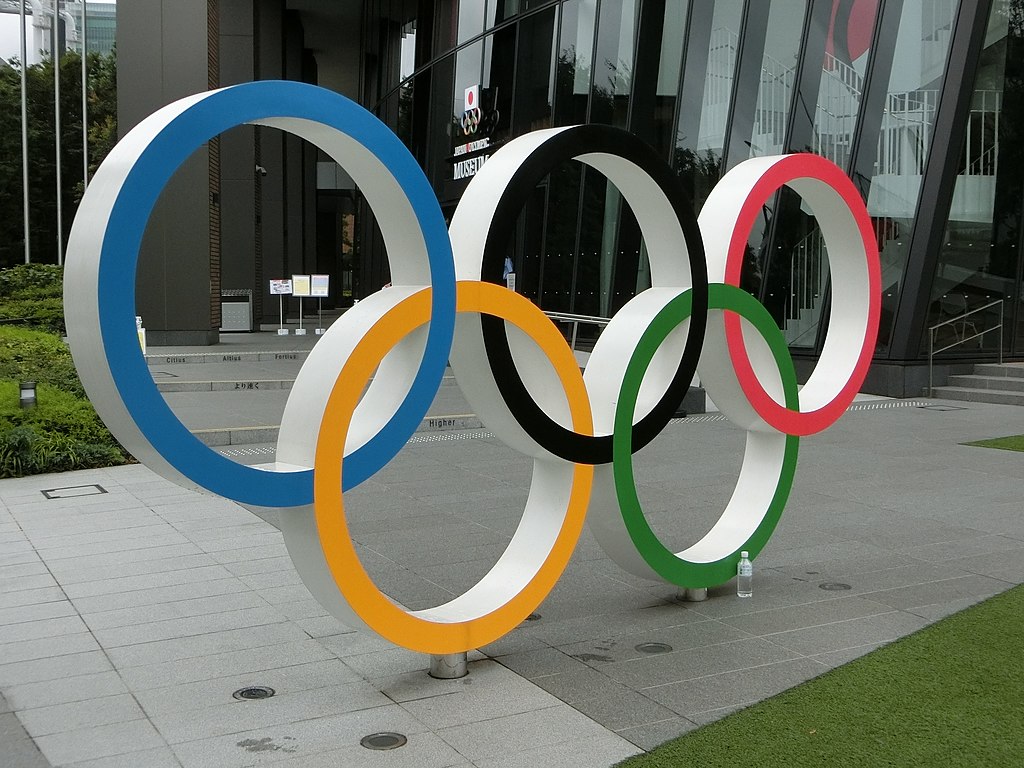Major sports events such as the Olympics must ensure better health protections for migrant workers
Published: 06 August 2021
 The Olympic Rings monument, in front of Japan Olympic Museum by RuinDig. https://commons.wikimedia.org/wiki/File:The_Olympic_Rings_in_Tokyo_02.jpg
The Olympic Rings monument, in front of Japan Olympic Museum by RuinDig. https://commons.wikimedia.org/wiki/File:The_Olympic_Rings_in_Tokyo_02.jpg
Two new papers published in The BMJ today (Friday), highlight the substandard conditions faced by migrant construction workers involved in large sporting events and the work needed to address these issues.
The papers, authored by international researchers with expertise in migrant health, focus firstly on the evidence behind the conditions faced by migrant workers and the research needed to answer further questions on the impact of their treatment, and secondly on the recommendations for policymakers in promoting health and access to health among these workers.
The authors report that multi-million-pound sports events, such as the Summer Olympic Games in Japan and FIFA World Cup in Qatar, shine a light on the unacceptable living and working conditions of many migrant construction workers.
To host these big sports events, countries undertake large infrastructure projects, building new stadiums and extending public transportation. Hundreds of thousands of migrant workers a year are needed, often quickly and for a short time. Given local constraints in supply, such jobs are often filled by low-skilled, low-waged migrant labourers.
The first paper outlines the evidence supporting the need for further research into assessing the needs and occupational hazards faced by migrant workers as well as informing international and regional dialogue and policy making.
Previous data, aggregated by the authors in the paper, shows that in the run up to summer Olympic Games between 1992 and 2016, there was a substantial increase in the incidence of occupational fatalities in the five years leading up to these games.
Language barriers, harsh working conditions (such as high temperatures and working night shifts) and poor work practices are all cited as likely contributions to the unsafe environments these workers are exposed to.
The authors call for further research studies to better understand the factors that block or facilitate migrant workers’ access to public or private health systems and the obligations of governments and private companies that manage their stay. They state that the first step required will be to improve data collection by establishing common data collection protocols across countries, reporting on health needs, illness, injuries, and deaths of migrant construction workers.
They add that Covid-19 vaccination uptake will also need to be considered in these groups, ensuring that migrant workers are included in the national response of host countries at major events.
Professor Andreas Flouris, co-author on the paper, from the University of Thessaly in Greece, said: “Research is needed to improve understanding of the causes of ill health and death in migrant labourers. This is a key starting point to enable evidence-based policy to improve their health.”
The second paper brings together recommendations on the steps that policymakers can take to ensure healthy environments and access to healthcare for migrant construction workers.
The key recommendations in the paper include:
- Governments and industries in host countries should uphold and adhere to international and national standards in the workplace and in living quarters in preparations for, during, and after such events.
- Sustainable improvements in working conditions and health rights must be guaranteed through changes in national legislation that provide universal health coverage and tackle wider social determinants of health.
- Industries and countries taking part in international events, countries sending migrants, civil society, researchers, human rights organisations, journalists and others must hold stakeholders to account to advance the health of labour migrants.
Dr Kristine Husøy Onarheim, co-author on the second paper, from the University of Bergen, said: “Sustainable improvements in working conditions and health rights must be guaranteed through changes in national legislation that provide universal health coverage and tackle wider social determinants of health.”
Dr Sally Hargreaves, co-author on both papers, from St George’s, University of London, added: “Major international events such as the Olympics and football World Cup present a window of opportunity for multisectoral and multistakeholder action to improve the health of migrant workers.
“It is crucial that multiple stakeholders tackle the accountability vacuum by demanding action and question when minimum standards are not met, alongside calling for greater emphasis on research and service delivery to improve health and strengthen data collection.”
“During the pandemic we have seen the increased vulnerability of low-skilled migrant workers and other migrant groups residing in high-income countries to Covid-19 infection and adverse outcomes, relating to overcrowded accommodation, occupational risk, precarious working environments, and exclusion from health and vaccination systems. Covid-19 has clearly highlighted that policy changes are now needed to tackle health inequalities and underlying risk factors in these groups.”